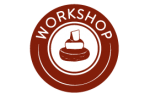The Maine Cheese Guild Invites you to attend:
Reverse Engineering and Troubleshooting Cheese with Peter Dixon
April 4th, 2017 • 9am to 5pm • Governors Restaurant in Waterville, Maine
Morning Session
Cheesemakers, is there a cheese you love — and would love to make — but aren’t sure how? Does your creamery set-up enable you to make the
style of cheese your heart desires, or could it use some tweaking? Join Peter Dixon for a seminar exploring the reverse engineering of
cheese and deepen your understanding of how particular cheeses are made and the different routes you can take to get there. Peter will
dive deeply into 3 specific styles of cheese and, working backward, will explore how milk type, creamery set-up, make process, batch size,
culture, and rennet all work together to influence the final product.
Afternoon Session
Is your ideal cheese slightly different than what comes out of the vat? In the afternoon we will use the techniques used in the morning
to troubleshoot and explore the flaws and defects that may arise during cheesemaking. Learn about the root causes of these flaws and
defects and how to address them.
Peter Dixon is a dairy foods consultant and artisan cheesemaker who has been making cheese for over 35 years and consulting for 25. His work is guided by the demonstrable connection between risk reduction practices and high quality cheese and dairy foods. In 2013, Peter started Parish Hill Creamery, a small seasonal cheese business where he produces handmade, raw cheese with his wife Rachel and her sister
Alex Schaal.
Workshop fee:
$125 for Cheese Guild Members
$150 for non-members (cheese enthusiast membership included)
We are also offering two half scholarships for this workshop, so if you are interested please email [email protected] with a short paragraph on who you are and why you want to take the class, by March 20th
The room we’ve booked has plenty of space but please email [email protected] with your cheese suggestions by March 20th and I will send the top three choices to Peter so he can prepare for the workshop.
To Register please mail a $50 deposit (or total amount) to our treasurer:
Maine Cheese Guild
c/o Mary Belding, Treasurer
250 Walker Mills Road,
Harrison ME 04040
If you have any questions, feel free to email or call me at 549-3817
have a great day!
-Jessie


